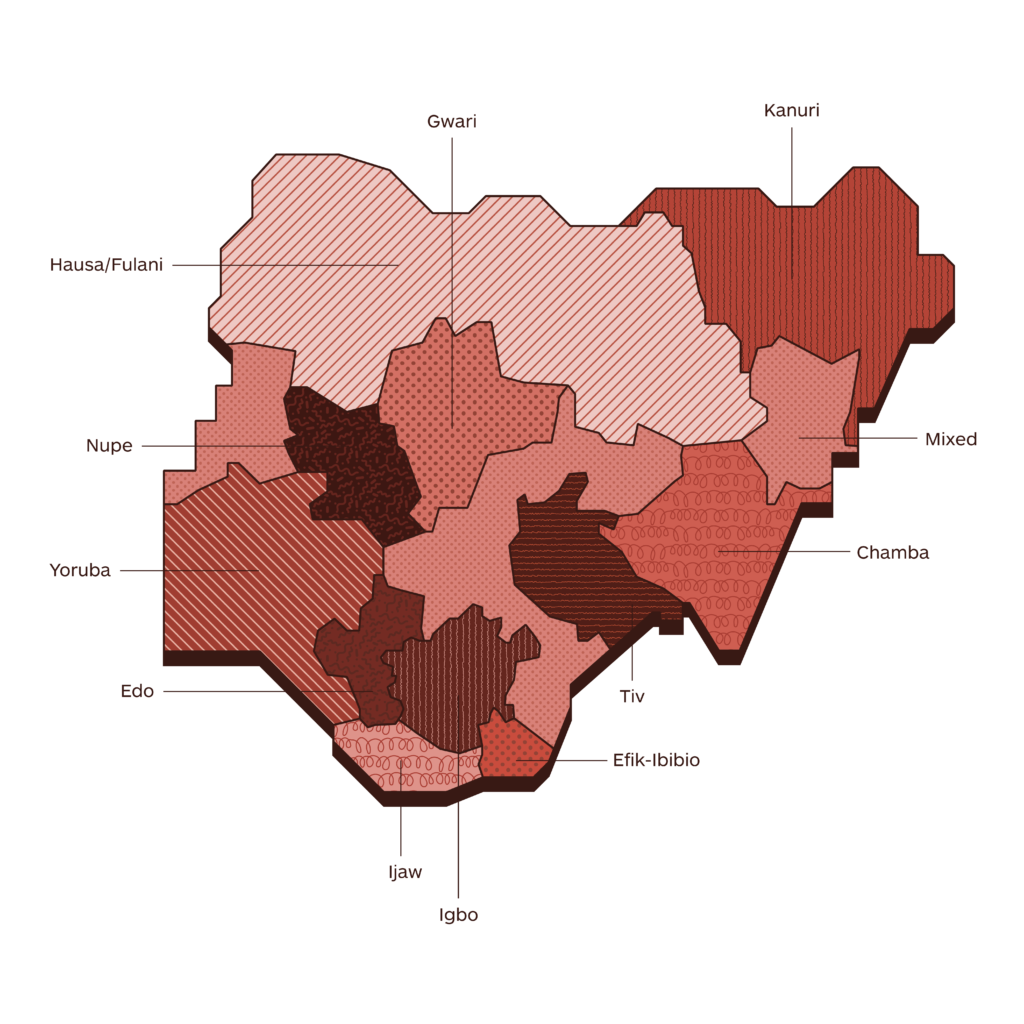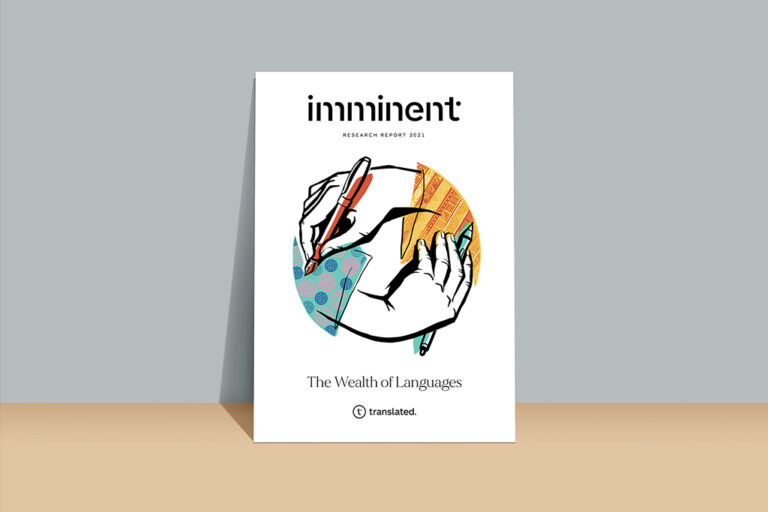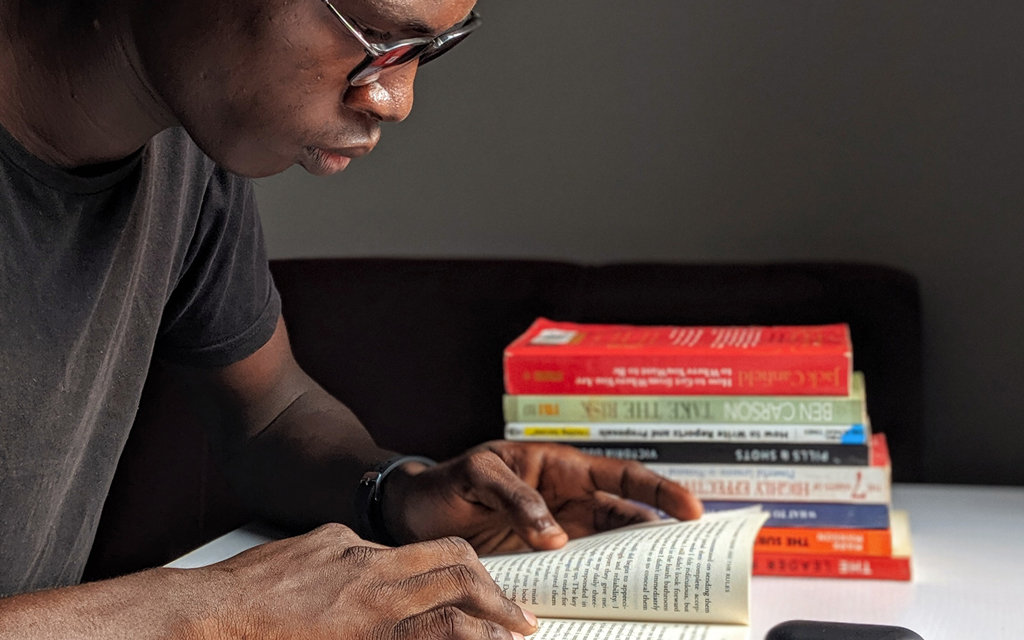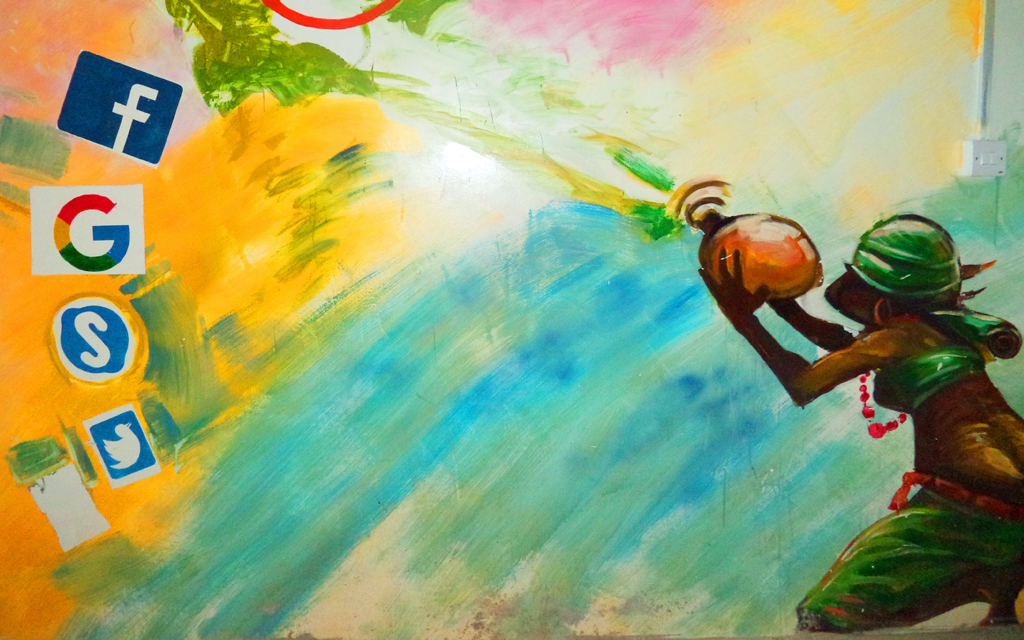Language

Legend
-
Kanuri
-
Mixed
-
Chamba
-
Tiv
-
Efik-Ibibio
-
Igbo
-
Ijaw
-
Edo
-
Yoruba
-
Nupe
-
Hausa/Fulani
-
Gwari
The transforming landscape of languages in Nigeria
“Nigeria has more than 500 indigenous languages, but English remains the lingua franca in places of power and influence”
Use of indigenous languages for social media communication The Nigerian experience Oloruntola Sunday, Ayo Yusuff, Simon Godwin Iretomiwa, Vincent Adakole Obia and Samuel Ejiwunmi, in African Language Digital Media and Communication, Edited by Abiodun Salawu, 2019.
There is a growing belief that quality of life depends on the ability to preserve cultural diversity and linguistic heritage. «Perhaps this explains why the Nigerian government is contemplating the use of indigenous languages in teaching some subjects in the early years of public school education».
Social media have become as important as the education system to challenge ideas about the future of languages in Nigeria, if not even more important. The first impression shared by most observers is that social media, which are mostly used by the young in Nigeria, are an exclusively English language environment. Local people seem to prefer using English online as if they are sort of ashamed of using their native languages in a context dominated by an international and mostly American set of cultural and mediatic symbols.

Imminent Annual Report 2021
Fit your business in global shape. Get your copy of Imminent Annual Research Report 2021. And let us know what you think.
Get your copy nowIn the research by Oloruntola Sunday, Ayo Yusuff, Simon God- win Iretomiwa, Vincent Adakole Obia and Samuel Ejiwunmi quoted above, this idea is discussed and challenged.
Languages spoken in Nigeria
| Native languages of Nigeria | Millions |
| Hausa | 63 |
| Yoruba | 42 |
| Igbo | 35 |
| Fulfulde | 15 |
| Ibibio | 10 |
| Kanuri | 8 |
| Tiv | 4 |

Educational and traditional languages in Nigeria
«Nigeria’s indigenous languages could go into extinction due to decline in their usage by the youths», Prof. Anthony Anwukah, the Minister of State for Education, has warned.
Prof. Anwukah raised the concern in a statement issued by the Ministry of Education in Abuja on the occasion of the celebration of International Mother Language Day. The statement, signed by Mr Agidike Onu, said that the minister expressed concern at the sharp drop in the number of Nigerian youths.
“Our youths, especially those living in the urban centres, hardly communicate in their mother tongue. I believe that the best way to give our children good knowledge of his- tory, values and tradition is to ensure that they read and write in their own local language. Language is the most potent instrument for preserving and developing a people’s cultural heritage”, the minister said.
“Language is the most potent instrument for preserving and developing a people’s cultural heritage’’
Mr Agidike Onu
The statement quoted Anwuka as saying that the theme of the celebration, “Quality Education, Language(s) of Instruction and Learning Outcomes” was apt. “It rightly coincides with the ministry’s effort in ensuring quality in the teaching of Nigerian languages at various levels of education. Nigerian Languages that are taught in schools have become a veritable instrument for consolidating language skills and other life coping competences’’, he said. The statement quoted Mrs Magdalene Maidoh, Secretary General, Nigerian National Commission for UNESCO, as saying that the Minister of Education was the president of the commission.

Imminent Annual Report 2021
Fit your business in global shape. Get your copy of Imminent Annual Research Report 2021. And let us know what you think.
Get your copy nowAccording to Maidoh the President of the Nigerian National Com- mission for UNESCO has the mandate to coordinate all UNESCO activities in the education sector in Nigeria. UNESCO proclaimed Feb. 21 of every year as the International Mother Language Day in commemoration of the massacre of Benghali speaking people of Indonesia for defending their mother tongue.
(The Inde- pendent, “Nigeria’s indigenous languages facing extinction”).

Traditional Nigerian languages online
Google allows for the use of the three main indigenous languages in Nigeria: Yoruba, Hausa and Igbo.
There are several groups on Facebook and accounts on Twitter that are expressed in Yoruba language. They seem to be mostly dedicated to proverbs. The group publishes proverbs and translates them into English, while talking about traditional values: “Themes in the analysed posts revolved around unity, hard work, contentment, focus, purpose-driven life, brotherliness, communal lifestyle, endurance, humility, gratitude and many other virtues that the Yoruba believe in”. On Twitter, themes are more focused on political and social matters, always with an angle which represents the Yoruba point of view.
Researchers quoted below have questioned people writing in traditional Nigerian languages on social media and they found that many believe that those languages are less used because: 1. people don’t know how to read and write in those languages; 2. software and interfaces are in English by default, and it is not clear if people know how to change that; 3. “Some of the respondents noted that people associate the use of indigenous languages on social media with fetishes, especially when it comes to posting cultural sayings, that they associate them with traditional worship; 4. “The respondents noted that those who use indigenous languages on social media face peer pressure since communication in English has be- come a status symbol amongst groups, especial- ly youths. Parents were also blamed because they encourage their children to speak English and consider those who speak indigenous languages as uneducated”
Use of indigenous languages for social media communication The Nigerian experience Oloruntola Sunday, Ayo Yusuff, Simon Godwin Iretomiwa, Vincent Adakole Obia and Samuel Ejiwunmi, in African Language Digital Media and Communication, Edited by Abiodun Salawu, 2019
People speaking traditional languages in Nigeria seem to use a lot the internet to look for content in their own language.
Hausa and Yoruba
Nigeria is rich in oil and poor in food. The North is where desertification is happening. From Wikipedia: “The ancestral language of the Hausa people, one of the largest ethnic groups in Western and North-Central Africa, Hausa is mostly spoken throughout southern Niger and northern Nigeria. It has developed into a lingua franca across much of Western Africa for purposes of trade”. Hausa people move and look for news in their language online.
Wikipedia: “Yoruba is a language spoken in West Africa and most prominently South western Nigeria. The number of speakers of Yoruba is estimated between 30 and 40 million, primarily by the ethnic Yoruba people. It is a pluricentric language spoken principally in Nigeria and Benin, with communities in Sierra Leone, Liberia”. Yoruba people seem very interested in movies in their own language to be found online. They don’t buy movies, as other data shows, but they search for movies, which they probably want to watch anyway.
Top Google search queries
| Search query | Index | Search query | Index |
| Download | 100 | Chelsea | 16 |
| News | 97 | Bet9ya shop | 17 |
| Bet9ya | 48 | Mobile bet9ya | 18 |
| Hausa | 40 | Nigeria news | 19 |
| Livescore | 37 | Arsenal | 20 |
| Bbc | 32 | 21 | |
| Bbc Hausa | 22 | Latest news | 22 |
| Live | 22 | Jamb | 23 |
| 18 | Prediction | 24 | |
| www | 16 | Old bet9ya | 25 |
According to the Digital2020 report for Nigeria by “We are social” and “Hootsuite”, 2 out of 10 top Google searches in Nigeria in 2019 where Hausa language related queries.
4 out 10 top Youtube search queries where about Yoruba or Hausa spoken movies.
Top Youtube search queries
| Search query | Index | Search query | Index |
| Movies | 100 | Barcelona | 17 |
| Love | 41 | Liverpool | 16 |
| Comedy | 33 | New movies | 15 |
| Yoruba movie | 32 | Wwe | 14 |
| Chelsea | 28 | Davido | 13 |
| Music | 27 | Latest Yoruba movies | 13 |
| Yoruba music | 26 | Wizkid | 12 |
| Hausa | 24 | Nigerian movies | 11 |
| Arsenal | 19 | Manchester united | 10 |
| 2019 Yoruba movies | 18 | Burna boy | 10 |
Value of digital advertising market
$1.17
BTotal digital ad spend in 2019
$412
MSpend on digital search ads in 2019
$516
MSpend on digital classified ads in 2019
$89
MSpend on digital banner ads in 2019
$94
MSpend on digital video ads in 2019
55
MSpend on digital classified ads in 2019
Ecommerce spend by category
$1.21
BFashion & beauty
$970
MElectronics & physical media
$296
MFood & personal care
$606
MFurniture & appliances
$282
MToys & hobbies
3.20
MTravel (including accomodation)
$146
MDigital music
$647
MVideo games
Ecommerce growth by category
+43
%Fashion & beauty
+32
%Electronics and physical media
+50
%Food & personal care
+39
%Furniture appliances
+37
%Toys & hobbies
+9.4
%Travel (including accomodation)
+16
%Digital music
+16
%Video games
Financial inclusion factors
39
%Has an account with a financial institution
2.6
%Has a credit card
5.6
%Has a mobile account
6.3
%Makes online purchases and/or bill online
1.7
%Percentage of women with a credit card
3.4
%Percentage of men with a credit card
2.9
%Percentage of women making online transactions
9.4
%Percentage of men making online transaction
Source: The Digital 2020 report for Nigeria by “We are social” and Hootsuite”

Languages and sustainable development
The print publishing industry uses both English and traditional languages. The broadcasting industry uses only English. Television has not been interested in local languages because its business model was based only on advertising targeted to English speaking urban people. And the government has not been interested in changing this until recently. The debate is alive.
“Language is defined as a form of communication which allows human beings to engage in transactions and share thoughts, beliefs, notions, ideas and experiences, among others, which are intelligible to both parties. It is used by man as a means of social, cultural transmission as well as a means of knowledge advancement and educational development”.

Imminent Annual Report 2021
Fit your business in global shape. Get your copy of Imminent Annual Research Report 2021. And let us know what you think.
Get your copy nowAny sustainable development strategy needs to take into account the cultural wealth and diversity embedded in traditional languages. “It has been observed that, to effectively communicate development messages to the grassroots in a multi-lingual and multi-ethnic nation like Nigeria, there should be serious concern about the language in which it is transmitted. This is because, according to Salawu, the language in which a message is disseminated is as important as the message”. Sustainable development is community based: “Many local communities have been complaining that they are being neglected both in news coverage and in the sharing of development information, despite the fact that they are the politi- cal class that are relied upon when it is time to canvas for elector- al support during elections”. Some politicians agree: “In 2008, the Federal Government, under President Olusegun Obasanjo, decided to further create more channels of disseminating development messages to the grassroots. This brought about the creation of 56 FM radio stations across the country with a mandate to broadcast and interpret the policies and programs of the government in different languages, including indigenous languages”. However, more can be done: “the Nigerian government could follow the Indian example, where the government usually subsides indigenous language media because of their social importance”.
New technologies, indigenous language media practice and management for development in Nigeria, Toyosi Olugbenga Samson Owolabi, in African Language Digital Media and Communication, Edited by Abiodun Salawu, 2019
Photo credits: Muhammadtaha Ibrahim, Unsplash / Adegbenro Emmanuel, Unsplash / Code Ninja, Unsplash
